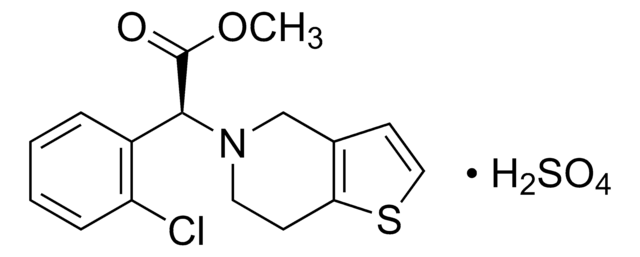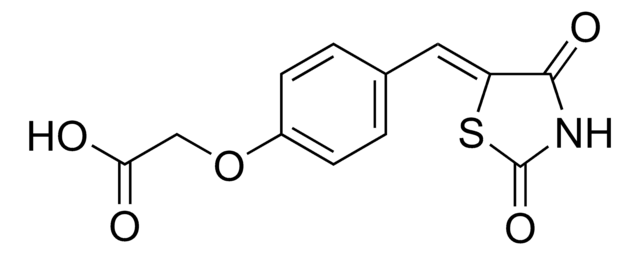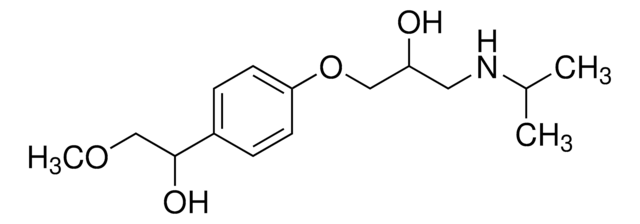O1385
Ozagrel hydrochloride hydrate
≥98% (HPLC), solid
Synonym(s):
(E)-3-[4-(Imidazol-1-ylmethyl)phenyl]propenoic acid hydrochloride hydrate, OKY-046
About This Item
Recommended Products
Quality Level
Assay
≥98% (HPLC)
form
solid
storage condition
desiccated
color
white to off-white
solubility
H2O: soluble
storage temp.
room temp
SMILES string
O.Cl.OC(=O)\C=C\c1ccc(Cn2ccnc2)cc1
InChI
1S/C13H12N2O2.ClH.H2O/c16-13(17)6-5-11-1-3-12(4-2-11)9-15-8-7-14-10-15;;/h1-8,10H,9H2,(H,16,17);1H;1H2/b6-5+;;
InChI key
OWIZTYOMGVTSDP-TXOOBNKBSA-N
Application
- in high cholesterol-diet rats (HC) to test its effect on arteriolar constriction
- to pre-treat mice to test its effect on lipopolysaccharide (LPS)-induced behavioral changes
- to test its effect on arteriolar vasoconstriction in hyperglycemic mice
Biochem/physiol Actions
Storage Class Code
11 - Combustible Solids
WGK
WGK 2
Flash Point(F)
Not applicable
Flash Point(C)
Not applicable
Personal Protective Equipment
Choose from one of the most recent versions:
Certificates of Analysis (COA)
Don't see the Right Version?
If you require a particular version, you can look up a specific certificate by the Lot or Batch number.
Already Own This Product?
Find documentation for the products that you have recently purchased in the Document Library.
Our team of scientists has experience in all areas of research including Life Science, Material Science, Chemical Synthesis, Chromatography, Analytical and many others.
Contact Technical Service







